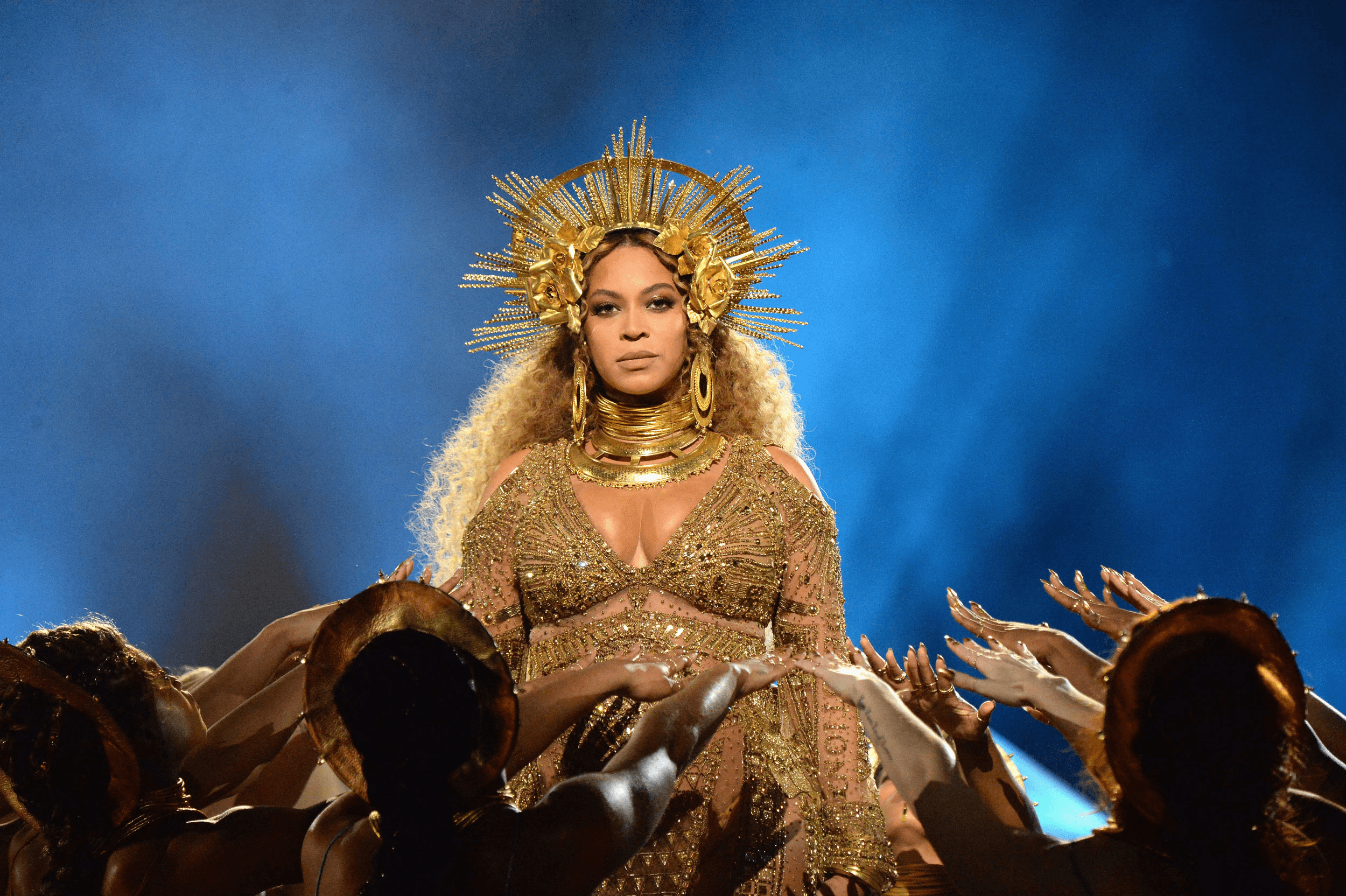
Beyoncé Giselle Knowles-Carter is first and foremost the daughter of Celestine.
And it was “with a mother’s pride” that Ms. Tina herself introduced her daughter’s celestial performance only an hour into Sunday’s Grammys. With shades of gold and yellow radiating out from the stage where she stood, Beyoncé channeled the sacred femininity she has long celebrated. But tonight, in her first performance since announcing her pregnancy on February 1, the icon insisted women are not simply powerful—we are divine.
In a monochromatic gold outfit that made Staples Center disappear behind her, Beyoncé looked regal. The intricate crown atop her head, adorned with both spikes and roses, was equal parts arresting and angelic. It recalled the ethereal headpiece her sister Solange wore in her Saturday Night Live performance in November, but with a protective edge. With its juxtaposition of floral fragility and thorned weaponry, Beyoncé’s halo befit the woman who appeared onstage to the sounds of British-Somali poet Warsan Shire: “Women like her cannot be contained.”
The performance itself was lavish, engrossing, otherworldly; but it still felt grounded in the way an Octavia Butler novel does: futuristic but familiar. Flanked by dozens of black women whose gold accents shone in harmony with her own gold attire, Beyoncé drew from some of Lemonade’s most powerful imagery: scenes of black women in sync with one another, dancing, swaying, being. Their bodies moved as a wave underneath her. When her gold throne tilted so far back it seemed it would rupture the laws of physics not to fall, the scene still felt imbued with a palpable sense of comfort. For the preternaturally precise Beyoncé, live performances rarely invite risk. But tonight, the vulnerability of her visible pregnancy created a heightened sense of fear. Though she never faltered, the urge to ensure her safety fostered a kind of intimacy that the gauzy set enhanced.
To Beyoncé, who has spoken openly about miscarrying, pregnancy is “very much like falling in love.” And tonight’s performance radiated with a saintly, seraphic love. “Love Drought,” easily Lemonade’s best track, felt steeped in maternal meaning when she sang it with a hand placed tenderly on her stomach during the gentlest of choreography. “Sandcastles,” the album’s most watery (and fan-maligned) track, took on a hopeful gravity when she turned to face audiences (and the camera, for those of us at home) while performing it. “Sandcastles” notably precedes redemption on Lemonade. Tonight, it ended with both a plea and a promise: “If we’re gonna heal, let it be glorious.”
“We all experience pain and loss, and often we become inaudible,” she said a little later while accepting the award for Best Urban Contemporary Album. “My intention for the film and album was to create a body of work that would give a voice to our pain, our struggles, our darkness, and our history–to confront issues that make us uncomfortable. It’s important to me to show images to my children that reflect their beauty.” If that project of reflection found a prism in Lemonade, then tonight’s performance was its apex.